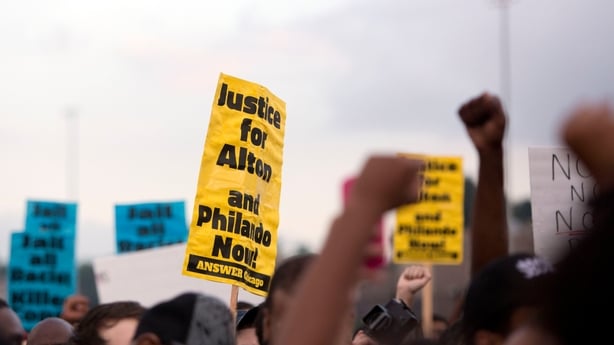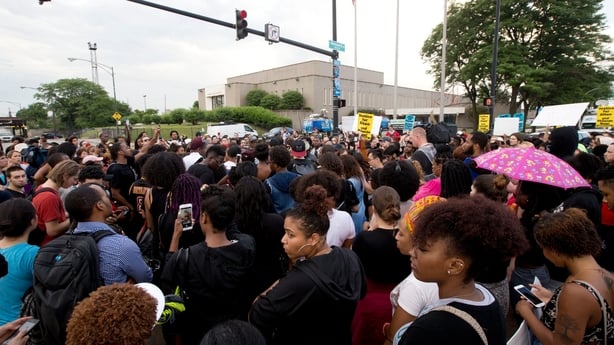The police chief in Dallas has defended the use of a bomb-carrying robot to kill the gunman who went on a shooting rampage last week targeting police and killing five officers.
David Brown also updated the number of officers wounded in Thursday's sniper attack from seven to nine, while two civilians were also wounded.
The attack took place during a peaceful protest over the fatal police shootings of two black men elsewhere in the United States.
"This wasn't an ethical dilemma for me. I'd do it again," Chief Brown said when asked about the use of a bomb robot to end the hours-long showdown with the shooter, identified as Afghanistan war veteran Micah Johnson.
Johnson, 25, was killed in the explosion.
He had told negotiators he was angry over police treatment of black men and was specifically targeting white police.
"I would use any tool necessary to save our officer's lives. I'm not ashamed to say it," the police chief said.
The $150,000 robot police employed is normally used as a bomb disposal tool.
In what is believed to be the first instance of its kind on US soil, police "improvised" the modified use of the robot to deliver a one pound brick of the plastic explosive C-4.
The process took about 15 to 20 minutes, Chief Brown said, with his only guidance to officers being: "Don't bring the building down."
The chief told reporters that Johnson, who used a high-powered rifle, may have been planning a major bomb attack, with a "large stockpile" of bomb-making materials found at his home.
Police investigators are combing through hundreds of hours of video evidence - from officer body cameras, dash cams and nearby businesses - to try to piece together what happened.
Civilians and police, meanwhile, gathered for a moment of silence at a makeshift memorial in front of the Dallas Police Department headquarters.
Officers stood in a line, as others assembled in a circle around a police car covered with balloons and flowers.
President Barack Obama and former president George W Bush plan to speak at an interfaith memorial in Dallas on Tuesday for the five killed officers.
Protests against police violence continue in US
Protests against police violence toward black men have continued in Chicago for a third consecutive day.
Demonstrators gathered near Daley Plaza and the Dirksen US Courthouse and marched along the streets in the city's downtown area with signs and placards reading "Stop Killing" and "Black Lives Matter".
Some were seen delivering speeches, and called on people to resist police abuse of power and violent law-enforcement behaviour.
Protesters said there is no police accountability, citing the police killing of Alton Sterling in Louisiana and Philando Castile in Minnesota in the past week.
A string of killings of black men by police in cities including Ferguson, Missouri, New York City, Baltimore and Chicago have given rise to the protests against excessive police force in recent years and prompted calls for better dialogue between police and communities.


The calls come as protests shut down main arteries in a number of US cities last night.
There were numerous arrests, scuffles and injuries in confrontations between police and demonstrators.
Undeterred by heightened concerns about safety at protests after the Dallas attack, organisers went ahead with marches in New York, Washington DC, and other cities.
It was the third straight day of widespread protests after the fatal shooting of Alton Sterling, 37, by police in Baton Rouge last Tuesday and the death of Philando Castile, 32, the following night in a St Paul, Minnesota suburb, cities which both saw protests over the weekend.
The most recent shooting deaths by police come after several years of contentious killings by law enforcement officers, including that of Michael Brown, a teenager whose death in the summer of 2014 caused riots and weeks of protests in the St Louis suburb of Ferguson.

